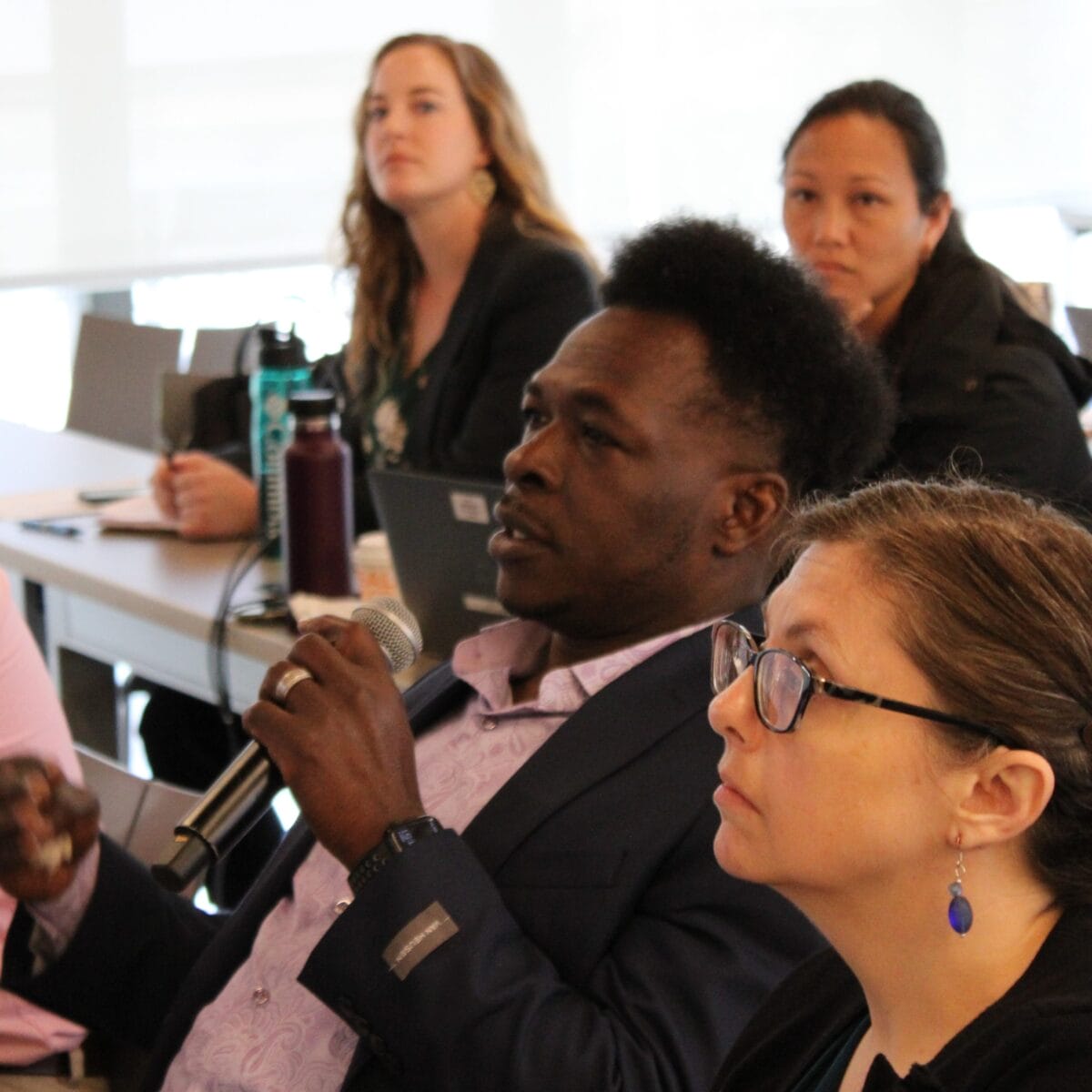
By Payton Moore, ASU Sustainable Food Systems graduate student.
In the spring of 2023, my cohort and I had the pleasure of traveling to Washington, D.C. to meet with various policy experts as part of our Food Policy Immersive course. To kick off the week, we first met with Andrew Perry and Steve O’Neill from the USDA Office of Budget and Program Analysis (OBPA) via Zoom. They shared valuable insights with us, from where comments go when discussing topics, how addressing rulemaking can be effective (in its passage or not), and self-implementing agencies.
The Office of Budget and Program Analysis is responsible for overseeing and managing the budget-related activities within the Department. This includes tasks such as formulating, presenting, and administering the budget, as well as evaluating program and resource-related matters and exploring alternatives. The Office strives to move USDA programs forward efficiently while taking note of possible risks, assessments, and evidence. Perry shared that he spent his career on rule-making work to make sure that administrators' policies are followed and accomplished; he currently serves as Deputy Director of Legislative and Regulatory Coordination at OBPA. O’Neill explained that he started at USDA’s regulatory side, ensuring political appointees have the required knowledge, eventually moving to APHIS (Animal and Plant Health Inspection Service), and then working currently with OBPA.
One prominent topic of discussion was writing effective letters to rule-makers. It’s important for individuals who feel concerned over particular issues to grasp the significance of understanding the matter completely. Perry and O’Neill emphasized that regulators tend to overlook vague or unclear issues, and they only take action when commenters explicitly address them. Perry also advised raising multiple issues to ensure that the person reviewing the comments is obligated to respond to and acknowledge each raised concern. The goal is to make sure the final rule accurately reflects the comments and addresses how they have been handled during implementation.
Over the spring semester, my cohort had a few assignments in which we submitted letters to our state legislators on topics of our choice. For example, my topic addressed the removal of the Puerto Rican boa from the endangered species list. However, in some cases, when submitting comments or letters, there was a set time limit before the topic closed to participants. This prompted a discussion regarding extending the deadlines, like in instances where particular voices need to be heard. This could be a rule affecting farmers and the set deadline may cause interference if it is during harvest season, for example. The farmer might be more preoccupied and not have the time to speak their mind. This extended time allowance gives people and communities with different expertise, skill sets, and knowledge a chance to speak out against potential concerns. Perry and O’Neill reassured us that every comment is read and taken into consideration, allowing USDA to weigh risks with consequences (intended or potentially unintended) and rewards for efficient and effective programs.
An exciting consideration that was raised during conversations with Perry & O’Neill was that of framing and how a topic is presented and/or executed in a certain way which can affect who pays attention to it, its timeline, and its perception. This is important for considering commentary on a rule. While a specific text or document may read x, y, and z, people can perceive that as a, b, and c instead. Perry highlighted, in this instance, the disconnect between what is considered an issue and what the issue really is.
After meeting with Andrew Perry and Steve O’Neill, I reflected on my past assignments in writing letters to rule-makers, how I would adjust my words, and what I would and would not mention when addressing rule-makers. I would raise more issues and add more perspectives while maintaining my primary point. I would also have more confidence in my writing now that I know it's read by reviewers. I highly valued our week in D.C. where both Perry & O’Neill were incredible contributors to our knowledge vault.
References
- “Office of Budget & Program Analysis.” USDA, https://www.usda.gov/obpa/home. Accessed 21 May 2023.
This blog is part of a series from the May 2023 Washington D.C. Immersive component of the Swette Center graduate programs. Students met with federal food and agriculture focused officials at USDA, the White House, and Congress alongside many other important influencers of policy in industry and non-profits.
